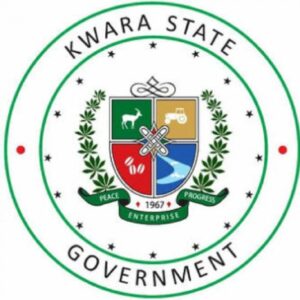
COVID-19: Nigeria yet to meet 70% vaccination target — FG
The Federal Government says the country has only vaccinated 68 per cent of it’s COVID-19 eligible population.
The government in 2021, said it had invested much and was ready to vaccinate 70 per cent of its population before the end of 2022.
But as of Feb. 7, the country had only vaccinated 68 per cent of the COVID-19 eligible population.
Dr Faisal Shuaib, Executive Director, National Primary Health Care Development Agency, (NPHCDA), said this on Thursday in Abuja.
He spoke at the First Quarter Review Meeting of the Northern Traditional Leaders Committee on PHC Delivery (NTLC).
Similarly, Mr Boss Mustapha, Secretary to the Government of the Federation and also Chairman, PSC on COVID-19, had also in December 2021, said the country invested in enough vaccines to cover over 70 per cent of the country’s eligible population.
Mustapha said the vaccines were safe and efficacious, hence it was better and safer to be vaccinated against the virus.
In spite of that, Shuaib, at the current review meeting, commended the NTLC for their support for Primary Health Care services.
He reiterated that the fight against COVID-19 was not over until the country attained 70 per cent target coverage of vaccination.
He further said the country needed to look beyond reducing the numbers of circulating Vaccine Derived Polio Virus type 2 (cVDPV2) by over 90 per cent, to get down to zero, adding that the target for 2023 was not just reduction, but getting it to zero.
The NPHCDA further noted that to eradicate all forms of disease outbreaks, states and LGAs Community Leaders should improve their routine immunization.
The Minister of Health, Dr Osagie Ehanire, while appreciating the role of NTLC, said the gains that were made over the years in PHC service delivery, were largely attributed to the role of traditional leaders.
Ehanire said that routine immunisation was a standard service of PHCs and was free, safe, effective and available across the country.
“Parents and caregivers need to be mobilised to ensure that children received the vaccine according to Nigerian’s routine immunization schedule,” he said.
He said that the country had made steady progress in the ongoing COVID-19 vaccination campaign, noting that over 66 million persons were vaccinated so far, bringing the reach to 68 per cent.
“ Although there is progress, there are still pockets of rejections and misconceptions about the vaccines.
“This only means that there are persons out there who are aware of how vaccines work, hence there’s a need for us to strengthen our sensitisation to our communities, to ensure everyone is vaccinated,” he said.
According to him, the coming administration needs to invest heavily in the primary health care system as 60 per cent of all ailments according to real estimates, can be handled at the primary care level.
The Minister said a shift away from PHC was seen more to be the reason progress was not made due to a lack of enough attention and investment.
He further stressed the need to strengthen the country’s health system, while also urging the traditional leaders to recommit themselves to stopping the transmission of all forms of viruses, especially polio, which had been a major concern.
Alhaji Muhammad Sa’ad Abubakar, the Sultan of Sokoto, said the NTLC would continue to work closely with relevant stakeholders and the NPHCDA.
The Sultan, who was represented by Alhaji Haliru Ndansua Yahaya, the Emir of Shonga, said the review meetings were important to exchange ideas and also provide an avenue to learn more.
According to him, “We await the reports from the just concluded 39th Expert Review Committee (ERC) meeting on Polio Eradication and Routine Immunization in Nigeria (ERC).
He said that NTLC would work with its recommendations on routine immunisation intensification and Polio outbreak response in the country.
Meanwhile, the Chairman of NTLC and Emir of Argungu, Alhaji Samaila Mera, said the review meetings such as this were important to reflect on achievements and bottlenecks in the ongoing efforts to create demand for PHC services.
The objective of the meeting is to review the progress and the role played by traditional leaders in Primary Health Care Delivery at the grassroots.



